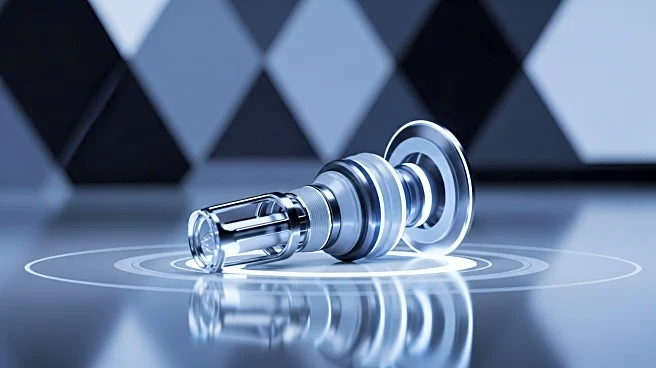What's Happening?
Johnson & Johnson has announced plans to spin out its orthopedics business, creating a standalone company named DePuy Synthes. This strategic move is aimed at concentrating the company's medtech unit on higher-growth and higher-margin markets, such as cardiovascular and robotic surgery. CEO Joaquin Duato emphasized that the spinout would allow the orthopedics business to become the largest and most comprehensive in the medical device space, benefiting from a more focused strategy and increased flexibility. The orthopedics unit, which generated approximately $9.2 billion in sales in fiscal year 2024, has seen a slight decline in revenue but rebounded in the third quarter of 2025. The spinout is expected to occur within the next 18 to 24 months, with Namal Nawana appointed as the worldwide president of DePuy Synthes.
Why It's Important?
The decision to spin out the orthopedics business reflects Johnson & Johnson's strategic shift towards markets with greater growth potential. By focusing on cardiovascular and robotic surgery, the company aims to enhance its position as a leader in healthcare innovation. This move could lead to increased competitiveness and profitability in the medtech sector, as the orthopedics business will operate independently, allowing for more agile decision-making and targeted investments. The separation also aligns with broader industry trends, as seen with Medtronic's similar decision to spin out its diabetes business earlier this year. Stakeholders in the medical device industry may experience shifts in market dynamics, with potential impacts on competition and innovation.
What's Next?
Johnson & Johnson plans to provide updates throughout the spinout process, with significant developments expected by mid-2026. The medtech unit will continue to focus on its cardiovascular, surgery, and vision businesses post-separation. As the orthopedics business transitions to a standalone entity, it will likely pursue strategic partnerships and investments to strengthen its market position. Industry observers and investors will be watching closely for any changes in market share and competitive strategies among major players like Stryker and Zimmer Biomet.
Beyond the Headlines
The spinout of Johnson & Johnson's orthopedics business may have broader implications for the medical device industry, potentially influencing regulatory and competitive landscapes. As companies increasingly focus on high-growth areas, there may be shifts in research and development priorities, impacting innovation and patient care. Additionally, the separation could lead to changes in employment and organizational structures within the orthopedics sector, affecting workforce dynamics and talent acquisition strategies.








